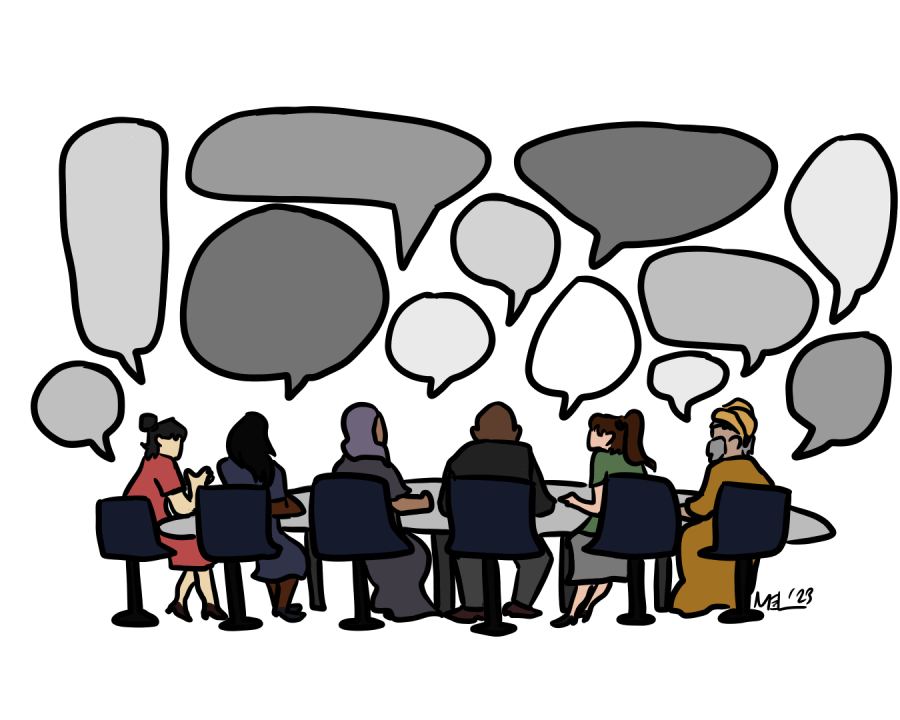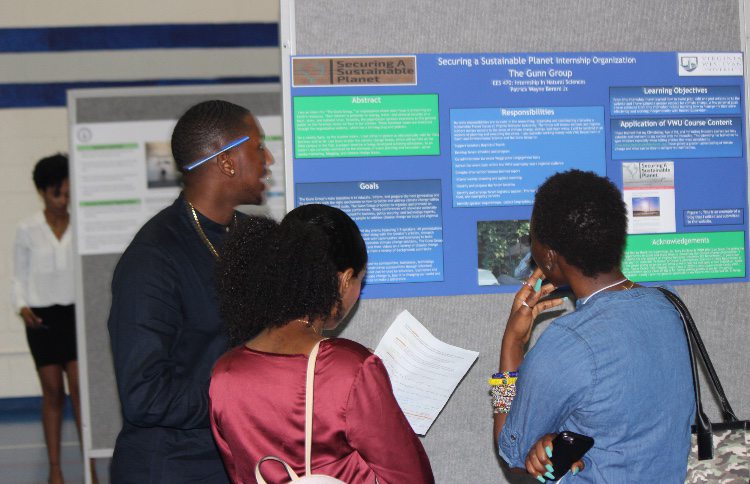Featured Image: Mel Lhuillier | Marlin Chronicle
In recent years, diversity and inclusion have become hot button issues at universities across the country.
At VWU, the administration has been making efforts to address issues of diversity and inclusion, with a number of initiatives aimed at creating a more inclusive campus community, particularly through a targeted department.
President Scott Miller unveiled the Diversity, Equity, and Inclusion Council (DEIC) in 2022.
The DEIC is considered the institution’s chief provider of activities that are intended to improve the educational value of the campus community via deliberate conversation and the appreciation of diversity, from purpose to function.
The DEIC intends to spearhead the university’s endeavors to not only comprehend the complexities of diversity, equity and inclusion issues, but also to furnish resources and services for students coming from different backgrounds and experiences.
The goal is to ensure that Virginia Wesleyan consistently values and respects differences, and that every member of the campus community has a voice.
DEIC deputy diversity officers include Academic Liaison Modupe Oshikoya, Athletic Liaison Cameia Alexander and Robert Nusbaum Center Liaison Kelly Jackson.
Audwin Harris, Felipe Hugueño, Marina Maye, Juliana Mushala and Bethany Tsiaras serve as deputy diversity officers of the council as well.
Cee Cee Tucker serves as the president’s special advisor on diversity, equity and inclusion. Senior Vice President Keith Moore and Provost and Vice President for Academic Affairs Susan Larkin act as ex officio liaisons to the President’s Cabinet. They also co-chair the council.
The first official project of the council was organizing a series of student focus groups that included members of on-campus communities, with representation of different races, ethnicities, genders and sexualities.
“The members of the DEIC are a fairly new group, and we wanted to get an idea about the culture of the campus community. That’s why we started with focus groups for the students, and are hoping that what we learn from those will help to guide us as we go forward and focus on areas that we might be weaker in and then also tell us where we’re doing very well,” Robert Nusbaum Center Liaison Kelly Jackson said.
The council’s plan is focused on establishing a hub for related programming through student organizations, academic departments and centers such as the Robert Nusbaum Center.
“We have established a form that people can fill out online. For example, we were in touch with departments if they were planning any events during Black History Month to let us know, and now we’re into Women’s History Month. Going forward, what we hope is that the DEIC can collect this information from all the different constituents across campus and then be able to advertise it in a unified way highlighting diversity,” Jackson said.
Regarding the focus groups, there were three 90 minute sessions of in-person student focus groups. The questions centered around students’ perceptions of the campus climate as it relates to the DEIC in the classroom, the VWU community and as individuals.
“I signed up for the focus group because open forum discussions intrigue me, especially on touchy topics like diversity and inclusion,” senior and History major Zion Purvis-Allen said.
The focus groups were facilitated by Veleka Gatling, Assistant Vice President for Diversity and Inclusive Excellence at Old Dominion University. The usage of a third party ensures authenticity and confidentiality among the participating students.
Oliver Chauncey, junior and Education major, expressed that any impactful efforts made after the focus groups should focus on effective communication, as it was one of the highlighted challenges, particularly between administration and student community.
Since the third party has yet to validate any reports from the focus groups, developing strategies and plans is still a work in progress. Nonetheless, the intention is to use the student reports and input to inform the council’s future activities.
“I think now change will come in the form of understanding,” Purvis-Allen said. “I believe the change will come through openly expressing opinions about issues without bias.”
Focus groups examined students’ perceptions of diversity and inclusion in the classroom, in the campus community and as individuals so that the council could gain a comprehensive understanding of the next measures they may take to maximize diversity and inclusion within the community.
By Houda Touchen
htouchen@vwu.edu


